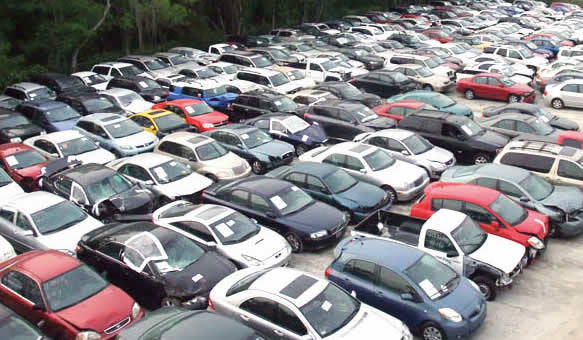News
Conversion Of Petrol Vehicles To CNG To Cost Between N300,000 To N600,000 – FG

The federal government has disclosed that Nigerians are expected to pay between N300,000 and N600,000 to convert their petrol vehicles to Compressed Natural Gas, CNG.…
The federal government has disclosed that Nigerians are expected to pay between N300,000 and N600,000 to convert their petrol vehicles to Compressed Natural Gas, CNG.
The Chief Executive Officer of the Presidential Compressed Natural Gas Initiative (P-CNGi) Steering Committee, Engr. Michael Oluwagbemi revealed this in an interview with Daily Trust after the official commissioning of CNG conversion centres and a demonstration of converted CNG vehicles in partnership with the private sector at the head office of Femadec Group, one of the partners in Lagos.
He also stated that the FG is also planning to establish 10,000 CNG vehicle conversion workshops in the near future.
Addressing the cost of conversion, Oluwagbemi explained that it may range between N300,000 and N600,000, depending on exchange rate compatibility.
He also mentioned that Nigeria aims to begin assembling and manufacturing CNG conversion kits, thereby creating further employment opportunities.
He added, “Currently, we are importing conversion kits, but under this initiative as a relief for Nigerians, the government is offering discounts on the immediate conversion cost and is considering flexible payment options as the committee continues to review the CNG initiative, offering more discounts and incentives.”
Additionally, the committee revealed that the initiative is expected to attract over $2 billion in investments into the Nigerian economy and create more than 250,000 employment opportunities for various professionals.
The Chief Executive Officer of Femadec Limited, Fola Akinola, expressed his anticipation for financing structures from banks through the federal government in addition to P-CNGi’s intervention to support the initiative.
News
Woman killed while crossing road in Anambra

The Federal Road Safety Corps (FRSC), Anambra State Sector Command, has confirmed the death of a woman in an accident at Okpoko Market on the Asaba-Onitsha Road.
The Sector Commander, Mr Adeoye Irelewuyi, who confirmed the accident to journalists in Awka on Thursday, said that the woman was hit while she was crossing the road.
He said that the accident, which occurred on Wednesday, involved a commercial tow truck with registration number XA550BMA.
“Eyewitness report reaching us indicates that the truck was towing a vehicle in an uncontrollable speed along the axis.
“The vehicle that was being towed got detached from the tow truck.
“It hit and killed a female adult, who was said to be crossing the road, while the tow truck continued its movement.
“FRSC rescue team came to the scene and took the woman to Toronto Hospital, Onitsha, where she was confirmed dead and her body deposited at the hospital’s mortuary,” he said.
While sympathising with the family of the dead, the sector commander urged motorists, especially tow truck drivers, to exercise a high level of professionalism.
He also urged the drivers to always use standard equipment and avoid speeding.
News
LASG’s maize palliative impactful, says poultry association chair

The Chairman, Poultry Association of Nigeria (PAN), Lagos State Chapter, Mr Mojeed Iyiola, said the state government’s maize palliative to members of the association made a positive impact on the sector.
Iyiola said this in an interview with the News Agency of Nigeria (NAN) on Thursday in Lagos.
“We received about 150,000 tons of maize in February from the Lagos State government as palliative to cushion the effect of high feed prices.
“The major benefit of the palliative is that it actually cushioned the cost of production for most poultry farmers in the state.
“The palliative was beneficial as it made the cost of some poultry produce, especially eggs to drop,” Iyiola said.
He noted that prior to the palliative, a crate of egg was sold between N3,500 and N3,700 at the farm gate, but after the palliative, it now sells between N3,200 and N3,400.
According to the PAN chair, retailers and middlemen who sell from N3,800 to N4,200 do that for their personal gain.
“We have urged our members to sell their eggs at reasonable prices following the receipt of the palliative from the government.
“We appreciate the Lagos State government for the palliative but we also urge the federal government to do likewise, to further reduce the cost of production in the sector.
“This will consequently lead to drop in the prices of all poultry produce across board,” he said.
He said the palliative was shared among financial members of the association at no extra cost.
“As an association we shared the grains equally across PAN’s eight zones in the state equally. We also mandated each zone not the sell even a grain of the maize.
“We, however, considered new poultry farmers who wanted to the join the association as beneficiaries of the palliative,” said Iyiola.
He noted that through the palliative, more poultry farmers were recruited into the association.
“The maize was shared only to poultry farmers and not feed millers, it is the major component of poultry feed formulation,” he said.










